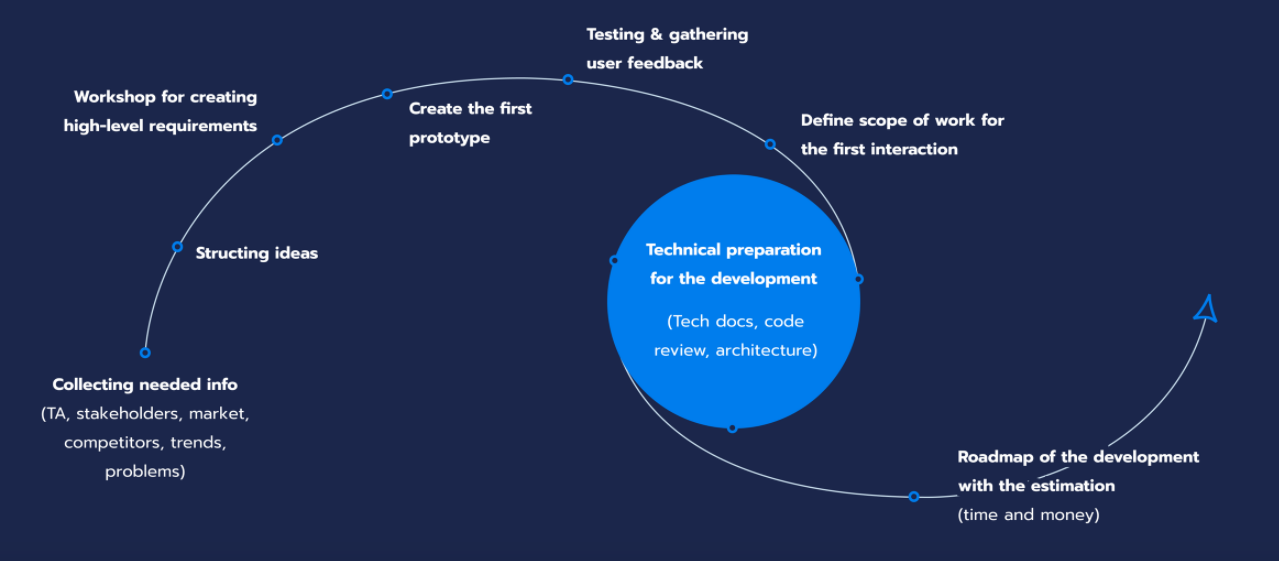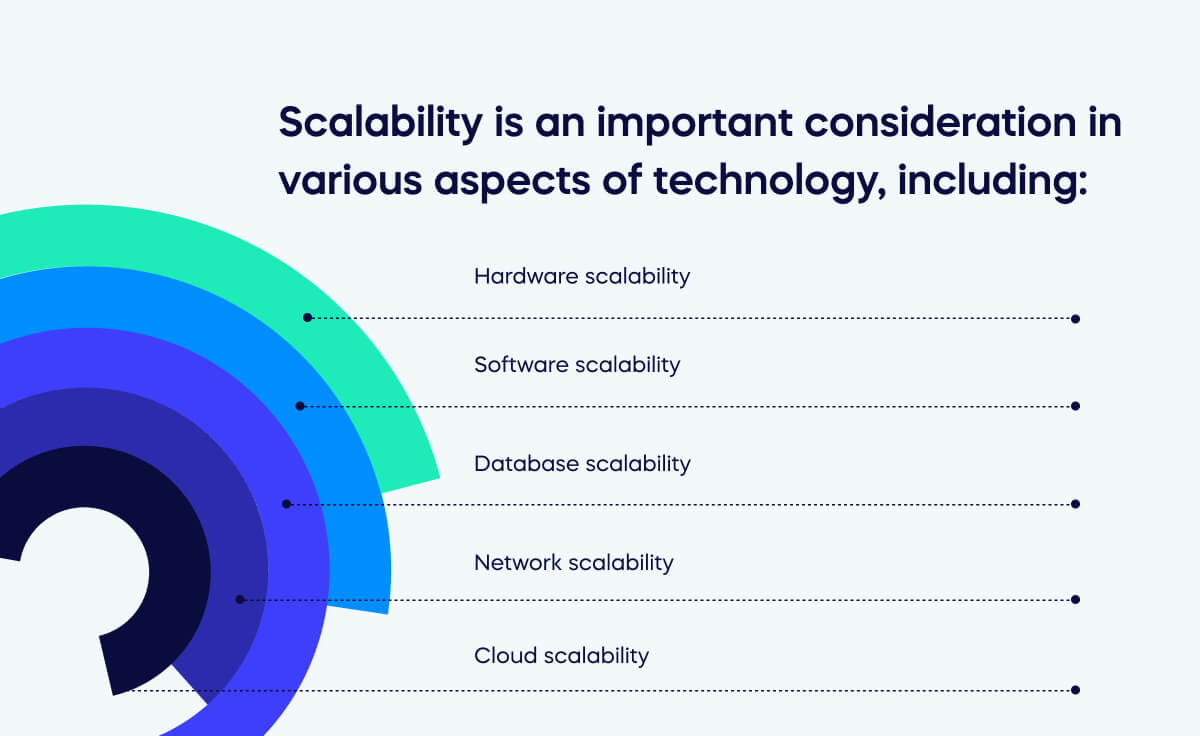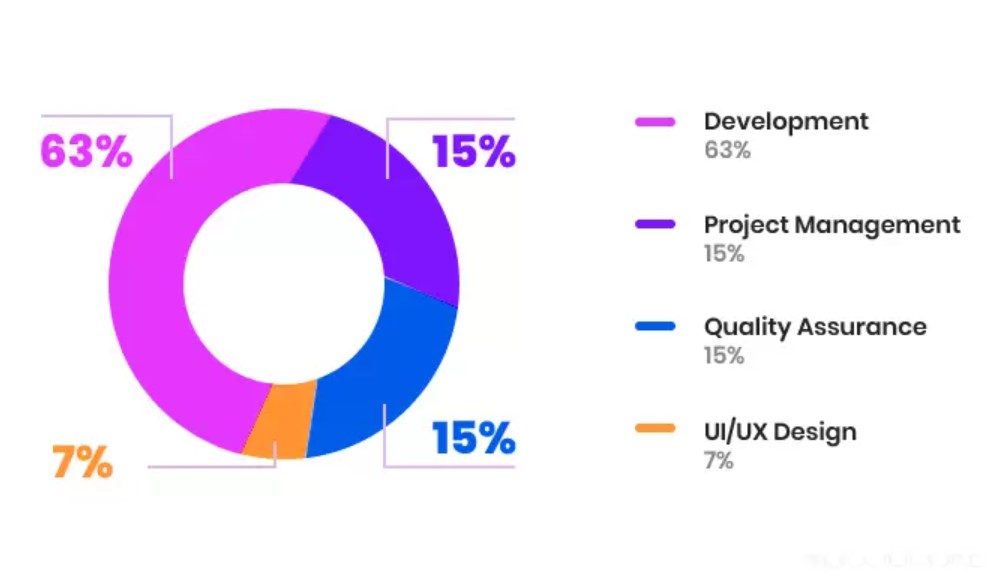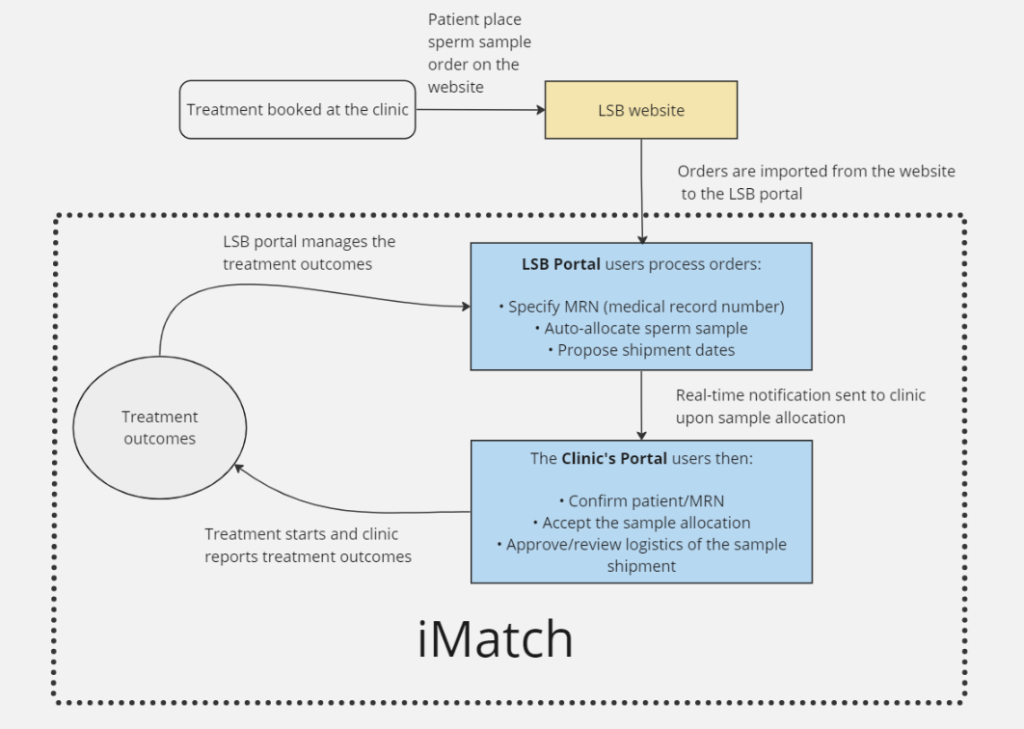In an era where digital transformation is paramount, bespoke software has emerged as a pivotal solution for businesses seeking tailored functionality. Off-the-shelf solutions rarely provide the flexibility and integrated features required to drive businesses forward, which is why almost 60% of businesses prefer bespoke software development.
At GoodCore, we specialise in creating custom software solutions that precisely match our clients’ unique needs, ensuring maximum efficiency and adaptability. However, custom software development is not without its challenges, including higher costs and longer development times. This article delves into the bespoke software advantages and disadvantages, providing a balanced view and GoodCore’s insights to help you make informed decisions.
What is Bespoke Software?
Bespoke software is custom-built software that is specifically designed to meet the unique requirements of an individual or organisation.
Unlike off-the-shelf software, which provides a one-size-fits-all solution, bespoke software is tailored to your specific business processes, workflows, and objectives. From our experience at GoodCore, many businesses today are turning to bespoke software due to its ability to provide a competitive advantage.
How Bespoke Software is Built
Bespoke software is built from scratch, taking into account the specific needs of your business.
This means that every feature, functionality, and design element is tailored to your exact requirements. Off-the-shelf software, on the other hand, offers a generic solution that may not fully align with your business processes.
With bespoke software, you have the freedom to choose the technologies, platforms, and integrations that work best for your business. This level of customisation sets bespoke software apart from off-the-shelf solutions.
The Rise of Bespoke Software in Business
In recent years, we have witnessed a significant increase in the adoption of bespoke software by businesses across various industries. The demand for custom software solutions stems from the need to address specific pain points and inefficiencies in existing workflows.
From small startups to large enterprises, organisations are recognising the value of bespoke software in increasing operational efficiency, improving customer satisfaction, and driving business growth. By 2030, the custom software development market is expected to reach $146.18 billion. This surge is driven by increasing demand for automation, personalised ERP solutions, and mobile and cloud-based applications tailored to specific business needs. With bespoke software, businesses have the opportunity to create a competitive edge and stay ahead in today’s fast-paced digital landscape.
Although not an exhaustive list, here are some industries that have benefited the most from bespoke software development:
- Healthcare. Given the ever-increasing complexity of patient data management and the need for seamless integration with various medical systems, healthcare providers are turning to bespoke healthcare software development services to streamline their operations. These tailored solutions not only improve efficiency in patient care but also ensure compliance with strict data protection regulations.
- Finance. With the constant evolution of financial regulations and the need for robust security measures, off-the-shelf software often falls short in meeting the specific requirements of banks and financial institutions. Bespoke Fintech software development allows these organisations to have full control over their systems, ensuring compliance, data security, and seamless integration with existing infrastructure.
- Manufacturing. The rise of Industry 4.0 and the increasing demand for smart factories encouraged manufacturers to leverage bespoke software solutions to optimise their production processes, monitor real-time data, and enable predictive maintenance. These tailored solutions not only improve productivity but also reduce downtime, minimise waste, and enhance overall operational efficiency.
The Advantages of Bespoke Software
Now that we have a clear understanding of bespoke software, let’s explore its advantages in more detail.
Customisation to meet unique business needs
One of the key custom software development benefits is its ability to be tailored to the specific needs of your business. Off-the-shelf software often comes with unnecessary features and limitations that can hinder your productivity and efficiency. With bespoke software, you have the freedom to choose which functionalities are essential for your business, ensuring that every aspect of the software aligns with your unique requirements.
The discovery process begins with gathering detailed requirements from stakeholders to understand the specific needs and challenges of your business. This involves in-depth discussions, surveys, and analysis to capture all necessary details. Once the requirements are gathered, they are translated into detailed specifications, outlining the features, functionalities, and integrations needed.

These detailed specifications serve as a blueprint guiding the development of the tailored solutions. By having a clear and comprehensive set of requirements, developers can create software that precisely matches the envisioned functionality.
Furthermore, bespoke software can be designed to seamlessly integrate with your existing systems and processes using various technologies and protocols, ensuring seamless data exchange and enhancing overall functionality. Below is a table detailing the technologies and protocols commonly used for integration:
| Integration Method | Description | Technologies & Protocols |
| APIs | Application Programming Interfaces (APIs) allow different software systems to communicate and share data. | RESTful APIs, SOAP |
| Middleware | Middleware acts as an intermediary layer that facilitates communication and data management between disparate systems. | ESB (Enterprise Service Bus), Message Queues (e.g., RabbitMQ, Kafka) |
| Custom Connectors | Specifically developed to bridge the gap between bespoke software and existing systems, ensuring smooth interaction. | Proprietary protocols, SDKs (Software Development Kits) |
Scalability for future growth

As your business evolves, so do your software requirements. Off-the-shelf software may not be equipped to handle the growth of your business, leading to additional costs and operational disruptions. Bespoke software, on the other hand, can be designed with scalability in mind.
Scalability in bespoke software is achieved through several advanced technologies and architectural approaches:
- Microservices Architecture: By breaking down the application into smaller, independent services, microservices architecture allows each service to be developed, deployed, and scaled independently. This modular approach enhances flexibility and makes it easier to scale specific parts of the application as needed.
- Cloud-Based Solutions: Utilising cloud platforms such as AWS and Azure enables bespoke software to scale effortlessly. These platforms offer a range of scalable resources, including storage, computing power, and databases, allowing the software to grow with your business without significant upfront investments in infrastructure.
- Containerisation: Technologies like Docker and Kubernetes facilitate the deployment and management of applications in lightweight, portable containers. Containers ensure that the software runs consistently across different environments and can be scaled horizontally by adding more containers as demand increases.
At GoodCore, we understand that your business needs to grow and adapt to changing market conditions. With bespoke software, you have the flexibility to add new features and functionalities as your business expands. This means that your software solution can grow alongside your business, saving you valuable time and resources in the long run.
Integration with existing systems
In today’s interconnected business landscape, integration plays a pivotal role in driving efficiency and improving productivity. Off-the-shelf software often struggles to seamlessly integrate with existing systems, resulting in data silos and fragmented workflows.
Key integration strategies include the use of Enterprise Service Buses (ESBs), API gateways, and custom middleware solutions.
| Integration Strategy | Description | Technologies and Protocols |
| Enterprise Service Buses (ESBs) | Central hub for communication between systems; routes, transforms, and enriches messages. | Mule ESB, Apache Camel, IBM Integration Bus |
| API Gateways | Manages, secures, and monitors API interactions; provides a single entry point for API calls. | Amazon API Gateway, Kong, Apigee |
| Custom Middleware Solutions | Tailored solutions for bridging bespoke software and existing systems; handles data translation and protocol conversion. | Custom-developed middleware, Node.js, Python |
With bespoke software, integration becomes a seamless process. Our team at GoodCore specialises in developing bespoke software solutions that seamlessly integrate with your existing systems, ensuring smooth data flow and eliminating manual workarounds. This level of integration enhances collaboration, enables real-time access to data, and streamlines business processes, ultimately driving productivity and efficiency.
Enhanced Security
Among other key benefits of custom software development is that it offers enhanced security measures. Off-the-shelf software is widely available and can be targeted by hackers due to its popularity. On the other hand, bespoke software is unique to your business, making it less vulnerable to cyberattacks.
Specific security measures implemented in bespoke software include:
- Data Encryption: Sensitive data is encrypted both in transit and at rest using protocols like AES (Advanced Encryption Standard) and TLS (Transport Layer Security).
- Authentication and Authorisation: Robust authentication mechanisms such as multi-factor authentication (MFA) and single sign-on (SSO), along with granular authorisation controls to restrict access based on user roles and permissions.
- Secure Coding Practices: Secure coding standards to prevent common vulnerabilities such as SQL injection, cross-site scripting (XSS), and buffer overflows. Regular code reviews and automated security testing are also part of this practice.
- Regular Security Audits and Penetration Testing: Periodic security audits and penetration testing to identify and mitigate potential vulnerabilities. This proactive approach helps in maintaining a secure software.
- Compliance with Industry Standards: Bespoke software are tailored to meet specific industry standards and regulations, such as GDPR for data privacy, HIPAA for healthcare data security, and PCI-DSS for payment processing etc.
Greater Control and Ownership
Additionally, bespoke software allows for greater control and ownership. Unlike off-the-shelf software, where you are at the mercy of the software provider’s decisions and updates, with bespoke software, you have full control over the development process and can make changes as per your business requirements.
- Ability to Modify and Extend: Owning the source code gives you the freedom to modify and extend the software without vendor restrictions. This means you can add new features, fix bugs, and adapt the software to changing business needs immediately, without having to rely on or wait for vendor updates.
- Custom Updates and Features: Businesses can implement custom updates and features as needed. This flexibility allows you to respond swiftly to market demands, regulatory changes, or internal process improvements. For example, if you identify a new feature that can enhance your operations, you can develop and deploy it right away, ensuring that your software remains relevant and efficient.
- Avoiding Vendor Lock-In: With bespoke software, you are not tied to a vendor’s roadmap or support timelines. This independence ensures that your business can continue to operate smoothly and innovate without being constrained by external factors.
This level of control empowers you to shape the software according to your vision and ensures that it remains aligned with your business goals.
Competitive Edge
Bespoke software can provide a competitive edge for your business. By having a unique software solution that is tailored to your specific needs, you can differentiate yourself from competitors who rely on generic off-the-shelf software. This can give you a strategic advantage in the market and help you stand out among your peers.
The Disadvantages of Bespoke Software
While bespoke software offers numerous advantages, it’s important to consider the potential disadvantages before making a decision for your business.
The high initial cost of bespoke software
One of the main drawbacks of bespoke software is its higher initial cost compared to off-the-shelf alternatives. The bespoke software development costs can be broken down in the following:

The customisation and development process involved in creating bespoke software require a significant investment of time and resources.
| Cost Area | Bespoke Software | Off-the-Shelf Software |
| Development | High costs due to custom development from scratch. | Lower costs as the software is pre-built. |
| Customisation | Extensive customisation tailored to specific needs. | Limited customisation; additional costs for any customisation. |
| Integration | Potentially high costs for integrating with existing systems. | Usually has built-in integrations, but may not cover all needs. |
| Licensing | No recurring licensing fees; you own the software. | Recurring licensing fees based on usage. |
| Support and Maintenance | Initial higher setup cost, but potentially lower long-term support costs. | Regular updates and support included, but may incur additional costs for premium support. |
However, it’s important to weigh this initial cost against the long-term benefits of bespoke software for your business. From increased efficiency to improved customer satisfaction, bespoke software has the potential to deliver substantial returns on investment over time, such as:
Cost Savings: Automates tasks, reduces errors, and lowers labor costs.
Improved Efficiency: Streamlines processes, enhances productivity, and integrates seamlessly with existing systems.
Revenue Generation: Custom features attract and retain customers, driving business growth.
Scalability and Adaptability: Easily scaled and adapted, avoiding costly replacements or upgrades.
Time-consuming development and implementation process
Creating bespoke software is not a quick fix. It requires thorough planning, development, and testing processes to ensure that the final product meets your business needs and requirements. From our experience at GoodCore, we understand that time is of the essence in today’s fast-paced business environment. Therefore, it’s crucial to consider the time and resources required for the development and implementation of bespoke software before making a decision.
| Development Stage | Duration | Factors Affecting Duration |
| Initial Consultation | 1 – 2 weeks | Availability of stakeholders, clarity of requirements |
| Requirements Analysis | 2 – 4 weeks | Complexity of business needs, thoroughness of documentation |
| Design | 3 – 6 weeks | Scope of UI/UX design, number of revisions needed |
| Development | 8 – 16 weeks | Project size, complexity of features, integration needs |
| Testing | 4 – 8 weeks | Number of test cases, QA processes, bug fixes |
| Deployment | 1 – 2 weeks | Environment setup, data migration, user training |
| Total | 19 – 38 weeks | Overall project complexity, resource availability |
However there are some strategies that can be implemented to mitigate the lengthy process of bespoke software development. Here’s how we ensure fast time to market for bespoke software development project:
- Agile Methodology: Implementing agile development allows for iterative progress, continuous feedback, and flexibility to adapt to changes quickly, reducing overall development time.
- Effective Project Management: Utilise skilled project managers to keep the project on track, manage resources efficiently, and ensure timely communication between stakeholders and the development team.
- Clear Requirements: Ensure thorough and precise requirement gathering at the start to avoid scope changes and rework later in the process.
- Parallel Development: Divide the project into smaller modules and develop them concurrently, speeding up the overall development process.
- Prototyping: Create prototypes or MVPs early to validate ideas and get early feedback to streamline subsequent development phases.
- Automated Testing: Incorporate automated testing to quickly identify and address bugs, ensuring higher quality and faster delivery.
Dependency on the software developer
With bespoke software, your business becomes reliant on the software developer for ongoing support, maintenance, and updates. This dependency can be seen as one of the custom software development risks, as it introduces an additional layer of reliance and potential risk.
However, working with a trusted and experienced software development partner like GoodCore can mitigate this risk. We prioritise long-term partnerships with our clients, providing comprehensive support and maintenance services to ensure the smooth functioning of your bespoke software solution.
Here are some tips on selecting a reliable software development partner to ensure your bespoke software remains functional, secure, and up-to-date:
- Experience and Expertise: Look for partners with a proven track record in bespoke software development and relevant industry experience.
- Client References and Reviews: Check client testimonials and reviews to gauge the partner’s reliability and quality of service.
- Support Services: Ensure they offer comprehensive support and maintenance services, including regular updates and security patches.
- Transparent Communication: Choose a partner that maintains clear and consistent communication throughout the project.
- Long-Term Commitment: Select a partner committed to building a long-term relationship, demonstrated by their approach to client support and ongoing engagement.
Real-World Cases at GoodCore: Bespoke Software Advantages and Disadvantages in Action
Case Study#1: Bespoke Clinic Management System for London Women’s Clinic (LWC)
Business Context
London Women’s Clinic (LWC), a private fertility healthcare center in London, faced operational challenges with an outdated MS Access system for patient data management and coordinating sperm sample deliveries. Recognising the limitations, LWC partnered with GoodCore to develop a bespoke system for enhanced efficiency.
Solution
We developed a web-based clinic management software for LWC, which automates tasks between LWC and the London Sperm Bank (LSB) for accurate data and dependable outcomes. The bespoke software is designed to scale efficiently across LWC branches and partner clinics, reducing installation and maintenance costs.

Impact
The bespoke clinic management system is now central to LWC’s operations:
- Facilitates daily operations for clinical staff in 12 branches and partner clinics.
- Processes hundreds of fertility treatment orders daily, managing an inventory of over 2,000 sperm bank donors.
- Saves hours of manual work for clinic staff.
- Ensures strict data privacy and security compliance within the HFEA-regulated environment.
Outcome
GoodCore’s bespoke software significantly improved LWC’s operational efficiency, data accuracy, and compliance, resulting in a streamlined and scalable solution that supports LWC’s growth and service quality.
Case Study#2: Bespoke Loan Management System for GC Business Finance (GCBF)
Business Context
GC Business Finance (GCBF), a non-profit supporting small businesses in Greater Manchester, struggled with slow, manual loan processes. To address this, they partnered with GoodCore to develop a bespoke system, making loan submission and approval faster and easier. This upgrade was crucial during COVID-19, enabling GCBF to quickly distribute loans through the Bounce Back Loan Scheme (BBLS).
Solution
GoodCore developed a bespoke loan management system for GCBF that streamlines the entire loan lifecycle from application to disbursement, simplifies registration and application steps for borrowers, ensures GDPR compliance and meets stringent financial security standards and functions as a white-label solution adaptable for use by GCBF’s partner network.
Impact
- GCBF became one of the first CDFIs to digitise loan management.
- Since 2019, the bespoke platform has streamlined applications for thousands, significantly enhancing GCBF’s loan processing capabilities.
- By November 2020, GCBF was the first UK lender accredited by The British Business Bank for BBLS.
- The white-label feature opens additional revenue opportunities through customisation for other organisations.
Outcome
GoodCore’s bespoke software transformed GCBF’s loan processing, enabling rapid response during the pandemic and creating new revenue streams, highlighting the substantial positive impact on their business.
How to Evaluate the Advantages and Disadvantages of Bespoke Software for Your Business
Now that we have weighed the custom software advantages and disadvantages, it’s time to consider whether it is the right choice for your business.
Tip #1: Assess your business needs and resources
Every business is unique, and so are their software requirements. Before deciding on bespoke software, it’s essential to assess your business needs and resources. We recommend focusing on the following factors:
- The pain points you’re currently experiencing
- The limitations of your existing software solutions
- The potential for growth in the future
For instance, let’s say you run a small e-commerce business that is rapidly expanding. Your current off-the-shelf software may not be able to handle the increasing volume of orders and inventory management efficiently. In such cases, bespoke software can be tailored to meet your specific needs, allowing for seamless scalability and improved performance.
Furthermore, evaluate your available resources, both financial and manpower. Bespoke software development requires a dedicated team and investment. Make sure you have the necessary resources to embark on this journey.
Tip #2: Weight the pros and cons
Once you have assessed your needs and resources, consider the custom-made software advantages and disadvantages we discussed earlier in this article. Determine how important customisation, scalability, and integration are for your business, and weigh them against the potential drawbacks of cost and time.
Customisation is a significant advantage of bespoke software. It allows you to have a tailored solution that aligns perfectly with your business processes, eliminating the need for workarounds or compromises. Scalability ensures that your software can grow alongside your business, accommodating increased demands without any hiccups. Integration capabilities enable seamless collaboration between different systems, enhancing overall efficiency.
On the other hand, bespoke software development can be a time-consuming process. It requires careful planning, development, and testing, which may delay the implementation timeline. Additionally, the cost of bespoke software can be higher compared to off-the-shelf solutions. However, it’s critical to consider these factors in the context of the long-term benefits and returns on investment that bespoke software can bring to your business.
Tip #3: Consider the long-term impact on your business
Implementing bespoke software is not just a short-term solution. It has the potential to transform your business processes, streamline operations, and drive growth in the long run. Consider the future impact and growth potential of bespoke software on your business before making a decision.
For example, let’s consider you own a healthcare clinic that aims to provide personalised patient care. With bespoke software, you can develop a comprehensive electronic medical records system that caters to the specific needs of your clinic. This software can improve patient data management, enable efficient appointment scheduling, and facilitate seamless communication between healthcare providers, ultimately enhancing the quality of care you offer.
In conclusion, the decision to opt for bespoke software should be based on a thorough evaluation of your business needs, available resources, and the long-term impact it can have. By carefully considering these factors, you can make an informed decision that aligns with your business goals and sets you up for success.
Future Predictions for Bespoke Software Development
Looking ahead, the demand for bespoke software is only expected to grow. As businesses continue to face unique challenges and seek competitive advantages, the need for tailored solutions will remain crucial.
Despite present advantages and disadvantages of bespoke software, the landscape of custom software development is poised for significant transformation. Here are some key trends we can anticipate:
- Increasing Demand: As businesses encounter unique challenges and seek to maintain a competitive edge, the demand for custom-tailored software solutions will continue to surge.
- AI and Machine Learning: Cutting-edge technologies such as artificial intelligence and machine learning are set to further enhance the functionality of bespoke software. These technologies will enable businesses to automate mundane tasks, derive insightful analytics, and base their decisions on solid data.
- Cybersecurity: With the digital landscape constantly evolving, the role of cybersecurity in bespoke software development will become more crucial. Businesses will need to adopt robust security protocols to protect against cyber threats and data breaches, thereby preserving customer trust.
- Impact of IoT: The Internet of Things (IoT) will remain a key influencer in bespoke software development. The growing interconnectedness of devices will allow businesses to harness real-time data, enhance operational efficiencies, and offer more personalised user experiences.
- Cloud Integration: The integration of cloud technologies in bespoke software is essential for ensuring scalability, flexibility, and efficiency in application deployment and management, particularly in a digitally-driven and remote work environment.
- Enhanced User Experience Design: Prioritising user experience in bespoke software development is critical for ensuring user satisfaction and engagement, which directly impacts the success and adoption of the software solutions.
- Greater Use of Low-Code/No-Code Platforms: To speed up the development process and make it more accessible, there will be an increase in the use of low-code and no-code platforms. These tools will enable non-technical users to contribute to the development process, democratising the creation of bespoke solutions.
- Cross-Platform Compatibility: As the variety of devices and operating systems continues to expand, bespoke software will need to ensure seamless functionality across all platforms. This will be critical for providing consistent user experiences and maintaining efficiency in a multi-device world.
On a Final Note
At GoodCore, we believe that bespoke software has the potential to transform businesses by driving efficiency, productivity, and growth. While some may argue that off-the-shelf software solutions are more cost-effective, they often lack the flexibility and tailored features that can truly address the unique challenges faced by small businesses. By assessing your business needs, weighing the bespoke software advantages and disadvantages, and considering the long-term impact, you can make an informed decision for your business.
With bespoke software, businesses can have a solution that is specifically designed to meet their individual needs, allowing them to operate more efficiently and effectively. Yet, developing such software is a meticulous process that requires careful planning and execution. At GoodCore, our team of experienced developers follows a well-defined development lifecycle to ensure that every aspect of the software is thoroughly considered and implemented. From requirements gathering to testing and deployment, we leave no stone unturned to deliver a high-quality bespoke software solution.
Contact us today to start your journey towards tailored software excellence and drive end-user adoption like never before!
Book a Consultation
FAQs
Bespoke software can benefit businesses of all sizes. While the initial investment may be higher for small businesses, the long-term benefits of bespoke software, such as increased efficiency and streamlined operations, can make bespoke software a worthwhile investment.
The development time for bespoke software depends on various factors, including the complexity of the project and the availability of resources. From our experience at GoodCore, the development process can range from a few months to over a year.
To ensure the success of a bespoke software project, it’s crucial to partner with an experienced software development company like GoodCore. Our team will work closely with you to understand your business needs and objectives, ensuring that the final solution meets your expectations.
As a trusted software development partner, GoodCore provides comprehensive support for your bespoke software. We offer ongoing maintenance, updates, and technical assistance to ensure that your software solution continues to perform optimally.





